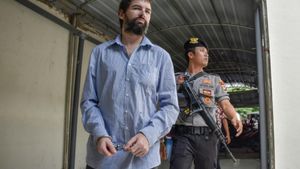Lucy Letby's conviction has been thrust back under the spotlight as international medical experts have raised grave doubts about the evidence used to determine her guilt. Letby, 35, was found guilty of murdering seven infants and attempting to murder another seven between June 2015 and June 2016 at the Countess of Chester Hospital, and is currently serving 15 whole life terms. Yet the narrative around her conviction might be shifting, as two panels of medical specialists convened by Dr. Shoo Lee contended new insights challenge previous findings, opening the door for potential investigations as miscarriages of justice.
On February 4, 2025, Dr. Lee, whose past research on air embolisms was central to the prosecution’s case, led the panel’s review where they assessed each of the 17 cases against Letby, concluding the medical evidence used to convict her does not support claims of murder. "We did not find any murders," Dr. Lee asserted bluntly during the press conference, stating instead these cases were due to natural causes or deficient medical care.
Dr. Lee’s expert panel, comprising 14 international neonatal specialists from several countries, articulated their findings at their London conference. They voiced concerns over the treatment provided at the neonatal unit of the hospital and pointed to systemic failures and multiple medical errors. Among the failures outlined were issues such as misdiagnosis, inadequate staffing levels, and error-prone medical procedures, which they argue contributed to the babies’ conditions without any intentional harm from Letby.
Notably, Dr. Lee refuted the prosecution’s interpretation of his previous studies, emphasizing the misapplication of his 1989 research on air embolisms when attributing certain deaths to Letby. He explained, “The notion these cases are air embolism because they collapsed has no basis in evidence. Let’s be clear about this.” His sentiments echoed the skepticism voiced by Letby’s legal representatives, who are positioning the new findings as significant evidence undermining her conviction.
Ever since her conviction, Letby’s legal team has pursued avenues to reopen her case, claiming inconsistencies and lack of credible evidence against her. Mark McDonald, Letby’s barrister, stated emphatically at the conference: “There is overwhelming evidence the conviction is unsafe. If Dr. Shoo Lee and the panel are correct, it means no crime was committed.” This belief is bolstered by the panel’s assertion they did not identify any deliberate harm, stressing many deaths were attributable instead to chronic health issues or poor care.
The backdrop of this debate is the severe consequences endured by the families involved. A spokesperson for the Criminal Cases Review Commission (CCRC) urged the public to remain mindful of these families, highlighting the delicate balance required when discussing allegations involving such sensitive lives. “We ask everyone to respect the families affected by events...,” the spokesperson reiterated, reflecting the complex emotional reality surrounding the inquiry.
Adding to the scrutiny, Conservative MP Sir David Davis, who has been vocal about the case, described Letby’s convictions as “one of the major injustices of modern times.” His advocacy has drawn attention from both policymakers and the public, fueling calls for thorough investigations of the legal process surrounding Letby's trials.
Dr. Lee’s panel has flagged systemic oversight failures at Countess of Chester Hospital as key areas causing these tragic incidents. At the press conference, he asserted, “If this was a hospital in Canada, it would be shut down. It would not be happening.” This stark statement highlights the experts’ concerns over medical standards and accountability.
Letby already faced multiple appeals, all of which were denied on grounds including claims surrounding the evidence’s reliability and the lack of alternative expert testimony during her initial trial. The legal roadblocks might change following the submission of the new findings to CCRC to examine if there are substantial new elements warranting another look by the appellate courts.
Public inquiries are also concurrently investigating how Letby might have been able to commit her supposed crimes. Police are assessing care practices across 4,000 cases at the Countess of Chester Hospital during her tenure, raising concerns over both procedural and systemic failings within the institution. These investigations are seeking to determine whether negligence contributed to the repeated incidents linked to Letby.
While her team appeals for reevaluation of her case, the repercussions from the original trial—and the subsequent media frenzy—continue to affect all parties involved, especially the families of the deceased infants. Many are left grappling with the darkness of the situation—a nurse they trusted being accused of crimes against the very lives she was supposed to save, and now the unsettling prospect of her conviction being challenged.
With new scrutiny from the expert panel, it remains to be seen how the reforming legal narrative around Lucy Letby will influence the courses of future criminal investigations and public perception. The stakes remain high as discussions continue to reveal the delicate threads binding medicine, law, and familial grief amid unthinkable tragedy.
Moving forward, the Criminal Cases Review Commission is tasked with not only evaluating the evidence presented but also ensuring the integrity of the justice system through its findings. The panel’s revelations could prove pivotal, potentially altering the course of justice for Letby and echoing throughout the medical and legal communities.



